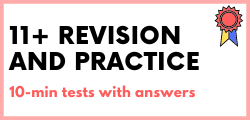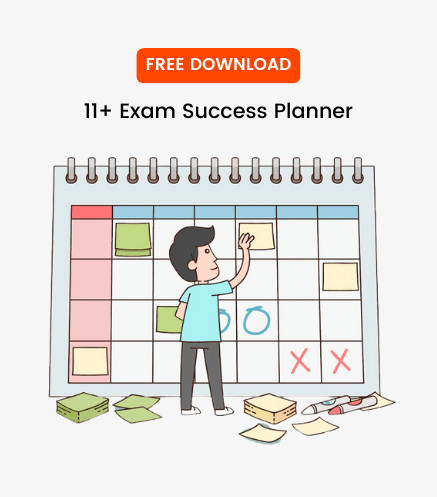Grammar Schools – A Background
The term Grammar School originates in schools that were connected to monasteries. These schools were called scholar grammatical and taught Latin grammar. Latin was the language of academicians and so these schools were associated with higher learning.
In modern times, Grammar Schools are secondary schools that are state-funded and are geared towards high academic standards. 11+ Grammar Schools do not charge fees. The two factors of high academic standards and no fees means that competition to gain admission into these schools can be quite fierce.
Most 11+ Grammar Schools give preference to students from within their own catchment areas but some offer boarding facilities and recruit students from other areas.
Grammar Schools offer a lot of advantages to students. Some of these are:
- Higher academic standards of education
- Focus on challenging pupils to achieve greater levels of academic excellence
- Social mobility – students develop a large network of influential friends while still at school
- Empirical evidence shows that those who attend Grammar Schools earn more, on an average, than those who attend comprehensive schools
What is the 11+ Exam?
The 11+ Exam – often called 11-plus – is an entrance exam taken by students at the beginning of Year 6.
The exam, although it varies from area to area of the UK, generally tests the following:
There are two examination boards for 11+:
- GL Assessment: This board administers the 11+ exam for Grammar Schools in the following areas:
- Berkshire
- Bexley
- Buckinghamshire
- Devon
- Gloucestershire
- Kent
- Shropshire
- Walsall
- Warwickshire
- Wirral
- Wolverhampton
- CEM - developed by the Centre for Evaluation and Monitoring at Durham University: This board assesses 11+ Exams for Grammar Schools in the following counties:
- Birmingham
- Cumbria
- Dorset
- Lancashire
- Medway
- Northern Ireland and
- Wiltshire
Both cover the same syllabus, but in different ways. For example, the CEM Board does not mention English and Maths specifically but the verbal reasoning exam tests English and the numerical reasoning exam tests Maths.
The main difference in the Boards is the geographical areas they administer. Both exams have a strong emphasis on English and Maths.
Testing in English includes:
Testing in Maths includes:
- Basic mathematics
- Problem solving
- Data manipulation
11+ Grammar School Exam Dates and Registration Dates
Most 11+ exams are held in the first two weeks of September. The exact 11+ exam dates may vary from school to school so it is a good idea to check directly with the school to which you wish to enrol your child / ward.
Most schools open registrations for the 11+ Exam in April, though some schools open registrations only in May. Parents / guardians have until June or July – depending on the school – to register their children / wards for the exam.
The results of the exam for 2022 is expected to be posted in mid-October 2022.
School allocations are usually made in March of the following year (March 2023 for those taking the exam in 2022).
The new intake for Year 7 begins in September of the year following the exam, September 2023 for those taking the exam in 2022.
How to Apply for 11+ Grammar School Exams?
The first step is to identify the Grammar Schools to which you would like to apply for your child / ward’s admission. For this, you can check online for your Local Council’s website to see the list of schools in your area.
Once you know the schools that might be suitable for your child / ward, you can visit the schools and talk to the school authorities. This is an important step for judging whether a particular school is the right one for your child or ward.
Once you have shortlisted the schools that you think are suitable, you can request them for information on the 11+ Exams conducted by them. They will also guide you on when to apply for 11 plus exam 2022 and the application process.
How to Prepare for 11+ Exams?
While the exact time period for preparation depends on the level of skill the child has already attained, it is a good idea to begin preparation about two years before the child wishes to attempt the 11+ Exam. A point to note is that preparation for the 11+ Exam actually prepares the student for a broad range of topics in core areas of English and Maths. Thus, preparation for the 11+ Exam generally helps the candidate in a spectrum of skills. You will often find that preparation for the exam has a benefit in regular school work and confidence as well.
The Preparation Plan
A Preparation Plan is a route map for preparing your child or ward for the 11+ Grammar School Exam. It provides a comprehensive and concrete, step-by-step path to ensure that the candidate faces the exam with confidence.
The Preparation Plan for 11+ Grammar School has the following Steps
- Evaluation of the candidate in order to determine:
- Strengths
- Weaknesses
- Creation of the revision schedule: It is always a good idea to create a time table based on the strengths and weaknesses identified in the step above. Be careful to include practice in areas where the child is strong as well. The tendency is to concentrate on areas where the candidate is weak but it is wise to give him or her practice in strong areas as well. That way, the candidate can solidify strengths and build up in areas where he or she is weak.
- Exam Practice: Sample papers are available online – some free, some on payment – that can give the candidate a feel of the actual exam. It is a very good idea to subject the student to mock tests that can simulate the actual exam experience.
Some tips and tricks to help your child/ward prepare for the 11+ Grammar School Exam:
- Use solved papers but only to check answers: Avoid the temptation to have the candidate learn through solved papers. Ideally, the student should learn the core skills separately and test them with mock tests, then evaluate answers with the help of solved papers.
- Use word games to keep the child engaged: Remember that the candidate preparing for the 11+ Exam is only six or seven years of age. Such children respond well to games, so use word games to impart knowledge while keeping the child interested.
- Encourage healthy competition: If your child is one among several children preparing for the 11 Plus, use their natural competitiveness to impart knowledge by conducting quizzes and word tests. At the same time, be careful not to let them put their companions into slots based on performance.
- Encourage your child / ward to read from a wide variety of sources: English is a core skill that is tested in the 11 Plus, so the more your child or ward reads, the better he or she gets at speaking and writing English.
- Converse with the child: Reading is an excellent platform to impart vocabulary but if the child cannot use the words it has learned, the reading goes to waste. Encourage the child to speak formally and informally. Ideally, form a group of children of the same age range and have them speak in formal and informal situations. A reward system for a child who correctly uses an unfamiliar word or phrase will also help improve vocabulary.
- Use shopping trips to improve mental mathematics: Take your child shopping and have it mentally add up the cost of items you buy. You’ll be surprised at how well children take to the challenge of doing mental maths in a practical situation.
- Watch a movie with your child and then have it summarise the movie: This will go a long way in helping your child improve his or her communication skills. Summarising the movie will also help the child remember the plot, characters, conflicts, etc., which will help in future academic interviews that he or she may face.


















































